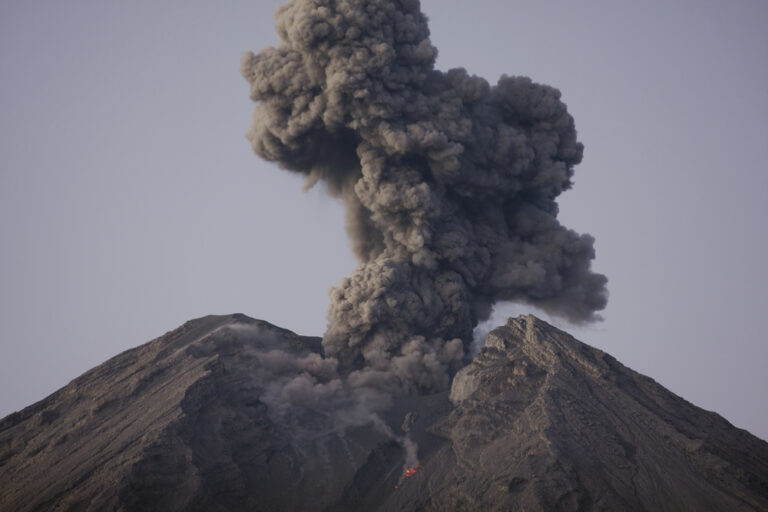Scientists are borrowing a technique from traditional weather forecasting to help them predict volcanic eruptions.
Geologists used a statistical data analysis technique called Kalman filtering to create new forecast models. The scientists then tested the models forecasting abilities against data from past eruptions.
The US researchers were particularly interested in examining volcanoes that erupted without warning. Typically, geologists can forecast eruptions through tell-tale patterns of pre-eruption activity such as earthquake activity, groundswell and gas release – but some eruptions take place without these warning signs.
The researchers examined an example of this – the eruption of Okmok volcano in Alaska in 2008 – which produced a mile-long ash plume and disrupted air travel between Asia and North America and “came as a bit of surprise”, according to the study’s lead author and University of Illinois graduate student, Jack Albright. Following an earlier eruption in 1997, Okmok experienced “periods of slight unrest, but very little seismicity or other eruption precursors”, Albright added.
By applying the Kalman filtering technique, which was developed after World War II and is still used in weather forecasting, the researchers were able to better understand what led to the 2008 eruption.
In a pre-eruption sequence, the reservoir under the volcano fills with magma and hot gases. Since the reservoir typically stays the same size, the presence of the magma and gases causes the pressure in the chamber to increase, leading to cracking and movement in the surrounding rocks. This in turn causes earthquakes, a warning sign that an eruption is imminent.
The reason this didn’t happen in the case of the Okmok eruption was because the magma chamber grew larger to accommodate the pressure increase, according to University of Illinois geology professor Patricia Gregg, the co-author of the study, which was published recently in Geophysical Research Letters.
She writes, “By looking back in time with our models, or hindcasting, we can now observe that stress had been building up in the rocks around the chamber for weeks, and the growth of the magma system ultimately led to its failure and eruption.”
Gregg believes the computer model can be used to analyze past events but also present and future forecasts, meaning it could be used to help predict when Okmok might next erupt.



